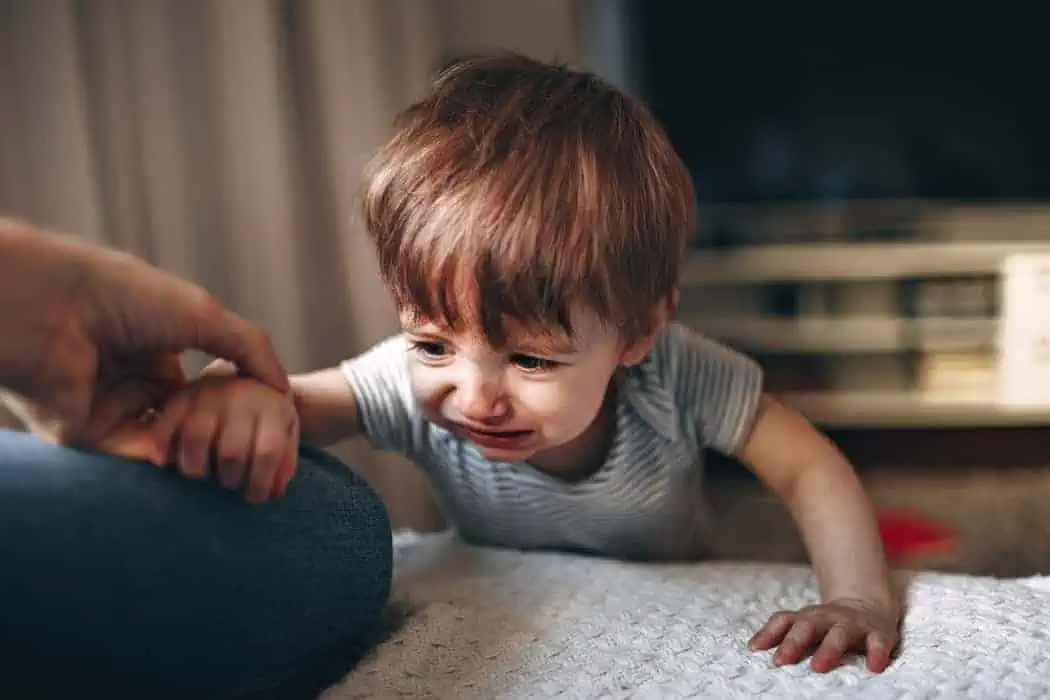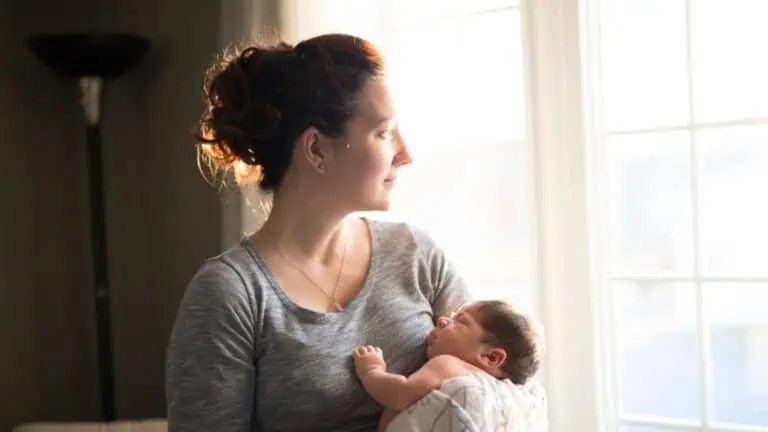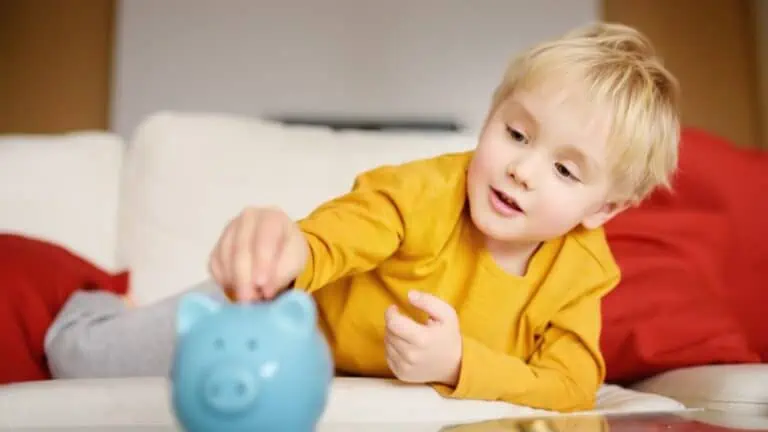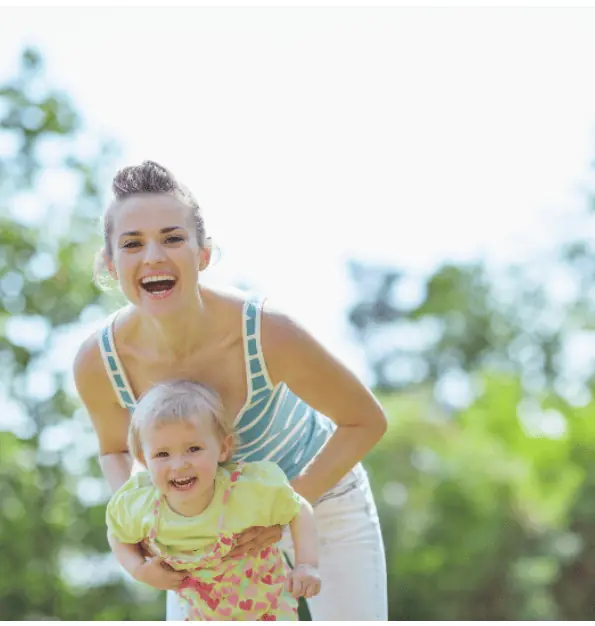Fearful Toddlers: Expert Advice on How to Help Your Child Through Insecurities
This post may contain affiliate links. As an Amazon Associate, I earn from qualifying purchases.
This week, we are talking about fearful toddlers. Children can get quite anxious about familiar (and unfamiliar things) in their surroundings. Some are warranted while others come out of nowhere. Thankfully, there are some simple ways to keep them calm and less anxious. Enjoy the read!
Fearful Toddlers: Expert Advice on How to Help Your Child Through Insecurities
It is tough to be a toddler. There are so many new things that they have to learn about and get used to, and it can be hard for them to find their footing in the world. And while we all have fears of some kind, toddlers exhibit many fears, and it can be tough to know how to reassure them of their safety.
We talked with parents about the most common toddler fears (spoiler alert: these range from animals at night time, darkness/imaginary monsters under the bed or in nearby corners, spiders) and what you can do when your child has insecurities like this one. Plus we’ll share some great tips on raising a child capable of managing fear!
[convertkit form=1551829]
Stranger
Babies may cry when a stranger tries to touch them, and even if the person is friendly there can be some hesitance to interact with someone new.
It’s not uncommon for babies who have been through this experience of feeling afraid of new people to cry when they see strangers in public places.
While it is never too late for a parent to help their child feel more comfortable with unfamiliar faces, the earlier you start making an effort to teach your baby that there are safe and friendly people out there, the quicker he or she will be able to overcome stranger anxiety.
Related read: 4 Parenting Mistakes that Every Parent Should Avoid
Separation Anxiety
Toddlers may startle and cry when they don’t see a parent nearby. “It’s not that they’re scared of being alone in the dark, but you are their main attachment figure,” says Dr. Jeanette Rizzo, an expert in child development at NYU.
“This is because toddlers have limited cognitive skills to process the world,” she continues.
Some children may experience separation anxiety when they are away from their parents for a certain amount of time or after an event that requires parental absence, like less than favorable family circumstances (a death in the family, divorce) or change to daycare arrangements.
Monsters

Toddlers have vivid imaginations that conjure up monsters in dark corners, shadows, clouds, or just about anywhere.
To calm them down, you can offer a bedtime story or use nightlights to make monsters less scary.
If your child is afraid of being alone in the dark, Dr. Rizzo suggests using rituals and routines before going into their room (reading them a book, singing songs) as well as leaving an item that they like in their bedroom floor to give them a sense of security.
Parents should also talk openly with their children about what they are afraid of and why so that the child doesn’t feel like he or she needs to keep these feelings hidden inside.
Related read: 6 Toddler Activities to Keep Them Busy and Learning at Home
Thunderstorms
Kids might be afraid of thunder and lightning, too.
It’s important to remember that kids this age don’t think in the same way as adults do; they may be more afraid of the noise than anything else or not understand what is happening at all.
In a situation like thunderstorms, it can help parents to reassure their children by repeatedly telling them that storms always pass.
Encourage your child to stay in a safe place during the storm and be sure that he or she knows where it is at all times. Even if you have a hard time getting out of bed due to anxiety, try not to let your kid see this behavior—you want them to feel reassured by your calm demeanor instead.
It’s also important to allow your child to participate in clean-up after the storm by putting away any breakable items or checking for damage. Give them tasks that are appropriate for their age, like gathering toys and sweeping up leaves from outside. This will help teach kids how to handle stressful situations as they grow older.
Scary News
Your kid might be spending hours glued to the TV or tablet, watching news channels, and watching scary videos on social media.
As a parent, it’s your responsibility to answer their questions honestly but without too many details so they are not overly traumatized by what is happening in the world.
This means taking time out each day for conversations with your children about what they’ve been reading, watching, or hearing from their peers.
It’s important not to overstimulate them by giving too much information at once and overwhelming them. Start the conversation by discussing something that is happening in the news then ask questions such as “What do you think
Related read: Play-Based Learning for Toddlers at Home
Dogs and Other Animals

Dogs and other animals can be scary to toddlers because they are fast-moving, unpredictable creatures. It is important for parents to teach their children that even if an animal might knock them down or lick their eyes, it does not mean the animal wants to hurt them.
Although your toddler may have seen a dog before when you took him to the park, he may have been too busy playing with other kids to notice.
As your toddler gets older and is more aware of his surroundings, you can use these opportunities just for yourself as well!
Heights
Your child might be afraid of heights because they associate them with feelings of vertigo.
Parents can help their toddlers by talking through the fear and reassuring them that it’s normal to feel scared in new situations, but there is nothing wrong with him or her–they just need some time to get used to what’s happening.
Teach Them to Manage Their Fears
For a child who is still learning to manage his own fears, the most important thing you can do as his parent is to help him learn.
Start by modeling positive behaviors and explaining how things work (storms are loud but they don’t hurt anyone). Then offer gentle exposure to what may be scary for your toddler. Coach him on ways to stay calm and tell him what is real, pretend, or how things that might be scary (storms, toilets) actually work.
Be honest with your toddler if you know something is going to happen or that something will hurt. Say why it’s happening and let them know they can trust you to tell the truth about anything—even difficult topics.
The most important thing to remember is that your toddler has a lot going on in their little head, so give them the time and space they need before you label them as shy or fearful.
You’re also not alone—many toddlers are afraid of things like “monsters” under the bed or having nightmares about loud noises. The more you talk about these situations and your child’s fears, the more likely he will be able to move past them.
What is your toddler afraid of? What have you found works best for helping them stay calm or re-direct their anxiety?







